Pet Sitter Faces Hefty Vet Bill After Dog Ate Paper-Wrapped Bread and Grapes; Furious Owner Refuses to Share the Expenses
Got a dog that seems to munch on anything in sight? Well, you are not alone!
It might gross some pet parents out, but believe it or not, this scavenging habit is entirely natural for our furry friends. Those curious canines especially love to chow down on all sorts of things they come across, from leaves and trash to stones and even the occasional unfortunate critter.
Whether it's humans or our furry friends, when it comes to consuming non-edible items, we use the term "Pica." Dogs dealing with pica seem to have this almost irresistible urge to snack on non-digestible items.
Some believe it might be because these pups are missing crucial minerals or nutrients from their diet. If you suspect your furry buddy might be showing signs of pica, it's a good idea to reach out to your vet for some advice.
Today's story from the "Am I The A**hole?" (AITA) subreddit is about a Redditor who helped their friend by pet-sitting her dog while she was attending a learning program. According to the original poster (OP), their friend was only able to secure an apartment share near the learning program, which did not allow pets.
The OP also mentioned that the dog eats everything, including plastic wraps. One day, amidst the OP's household chores, an unfortunate incident unfolded – they became so engrossed that they forgot to put away the groceries.
The dog, true to its nature, ended up devouring bread with paper wrap and a bunch of grapes. The OP took the dog to the vet and ended up with a hefty 600-euro vet bill.
When the OP approached their friend about covering the expenses, things took an unexpected turn. Instead of being understanding, the friend angrily refused, accusing the OP of nearly causing harm to her dog.
The OP can't shoulder the 600-euro bill on their own, so they asked the owner for help.
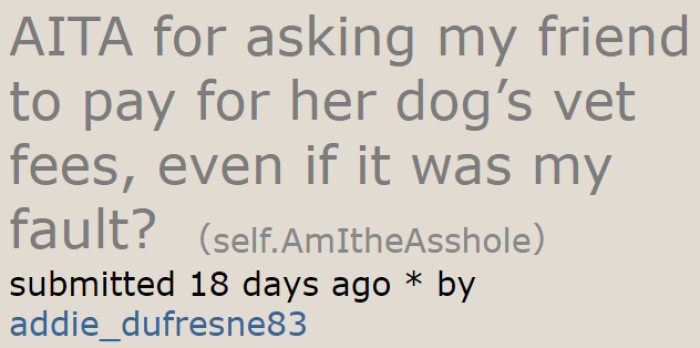
The OP was asked by their friend to watch over her dog while she was attending a learning program.

The dog ate bread with paper wrap and a bunch of grapes, so the OP had to take it to the vet.

Understanding Responsibility in Caretaking
Dr. Karen Davis, a behavioral psychologist at Stanford, emphasizes the importance of shared responsibility in caretaking situations.
Her research shows that caretakers often face emotional burdens that can lead to conflict, particularly when unexpected issues arise, such as a pet's health crisis.
In this case, the pet sitter and the dog owner may need to reassess their expectations and responsibilities to avoid further conflict.
The bill was substantial, so the OP kept asking the pet owner to shoulder it.

Redditors didn't side with the OP because of their negligence.
If they had stored away all the groceries, the dog wouldn't have had access to them.
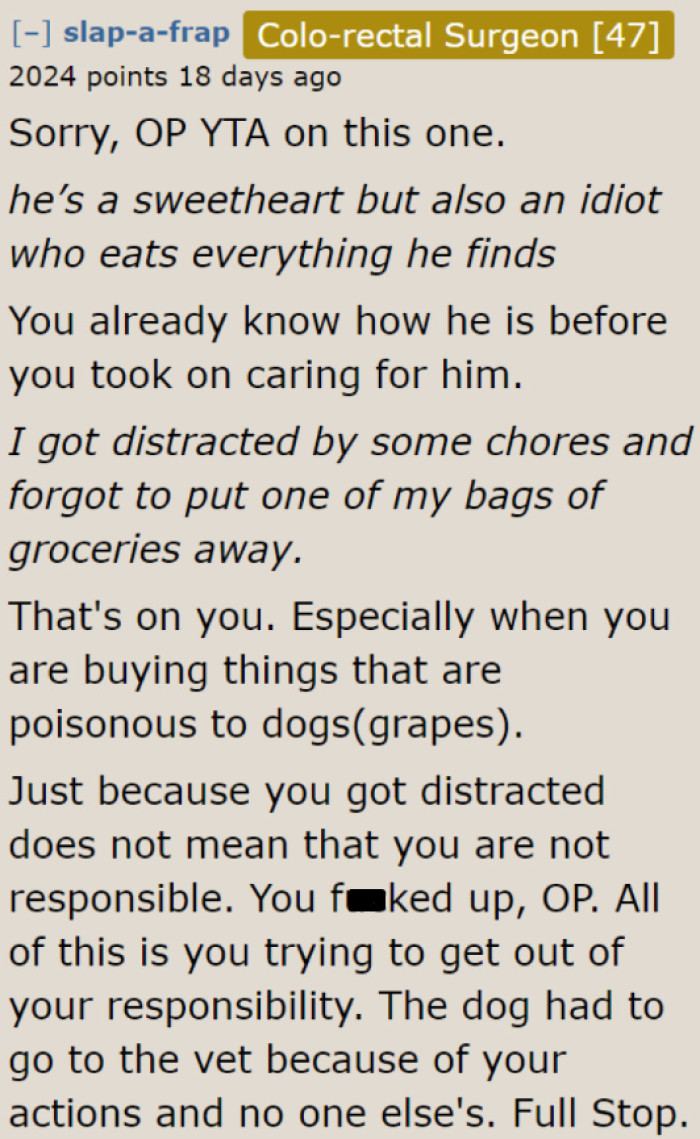
A user suggests splitting the bill 50-50; after all, the OP still cared for the dog.
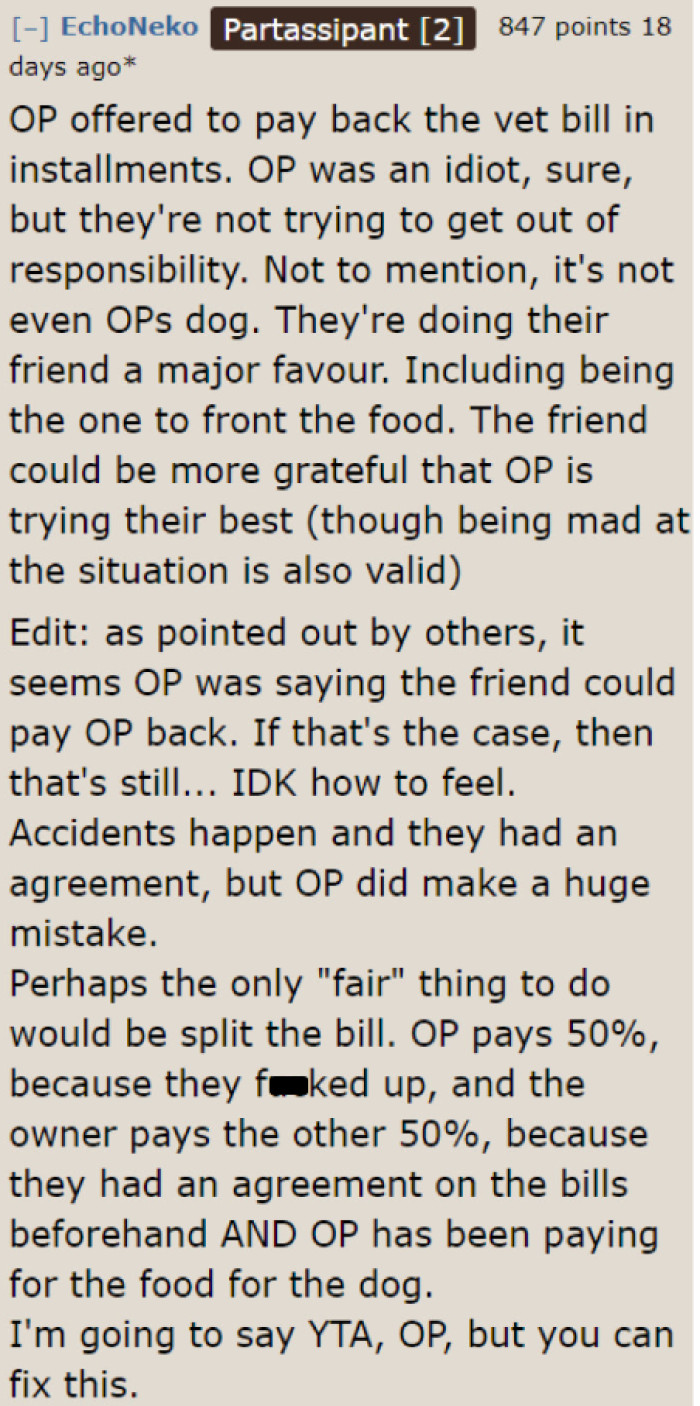
Studies published in the Journal of Applied Psychology reveal that misunderstandings in caretaking relationships often arise from unclear boundaries and communication.
When pet owners and sitters don't have explicit agreements about responsibility for unexpected costs, it can lead to resentment and conflict.
Addressing these issues proactively can help prevent misunderstandings in the future.
A few people believe it was an accident.
If the OP wants to deal with the ghosting friend fairly, they need to surrender the dog to a no-kill shelter.
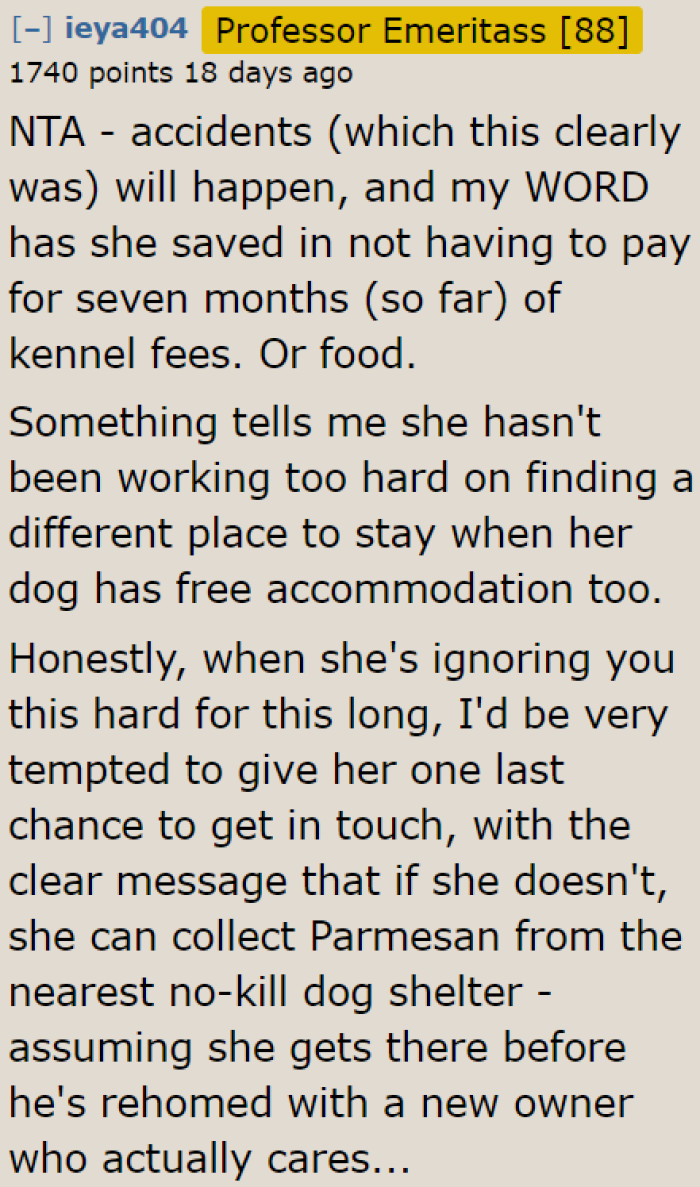
In some places, the OP can already claim the dog as theirs because they've been taking care of it for the past seven months.
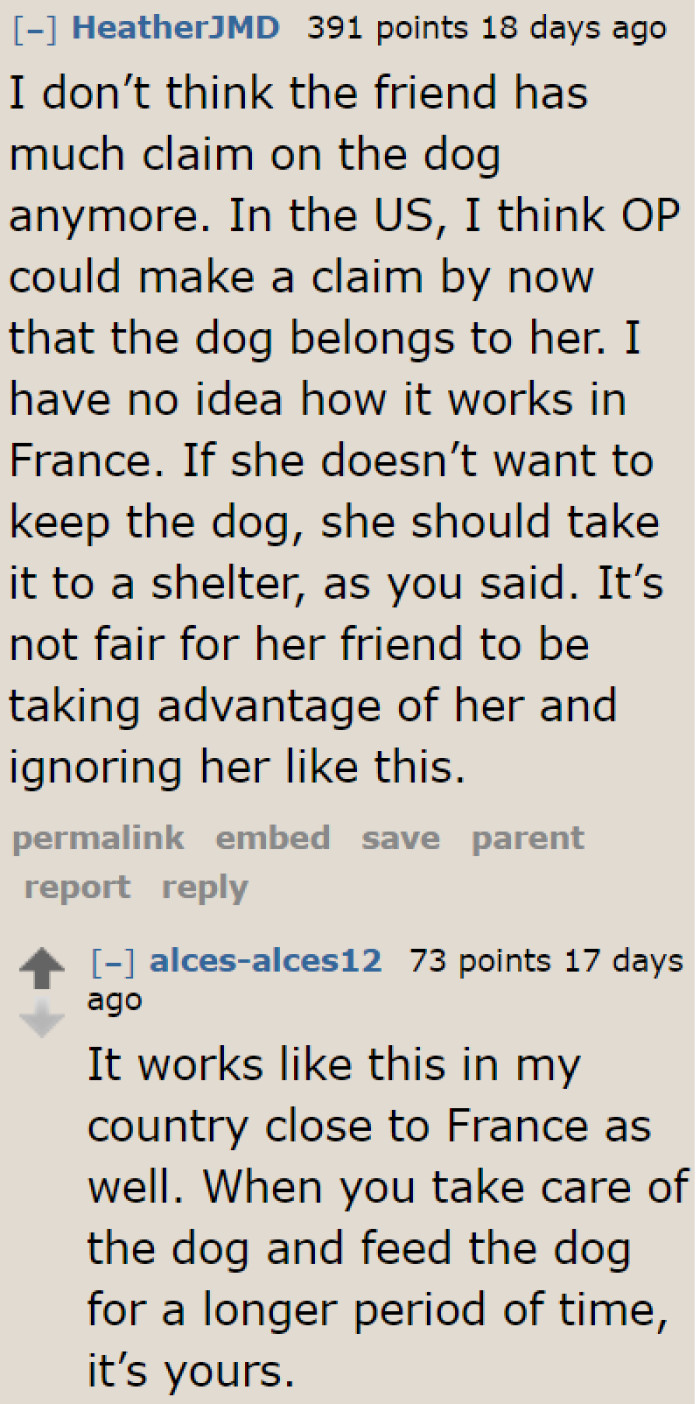
Ultimately, the vet bill is the owner's responsibility. However, since the OP is also at fault, she should contribute to the expenses to be fair.
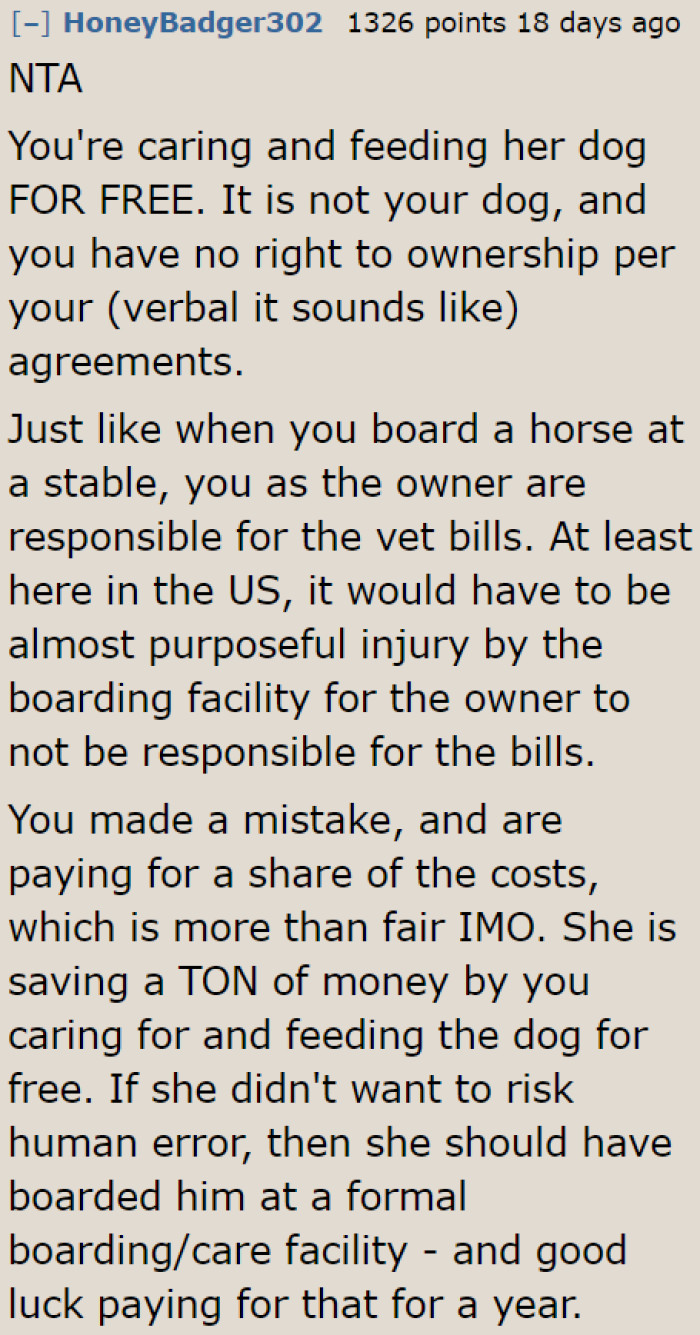
The Role of Emotional Responses
Emotional reactions in caretaking situations can often be traced back to attachment styles and personal experiences.
For instance, a pet owner may feel protective and anxious about their pet’s health, leading to heightened emotions during crises.
Understanding one's emotional triggers can lead to more constructive conversations and resolutions during conflicts.
Given the dog's nature, accidents can happen.
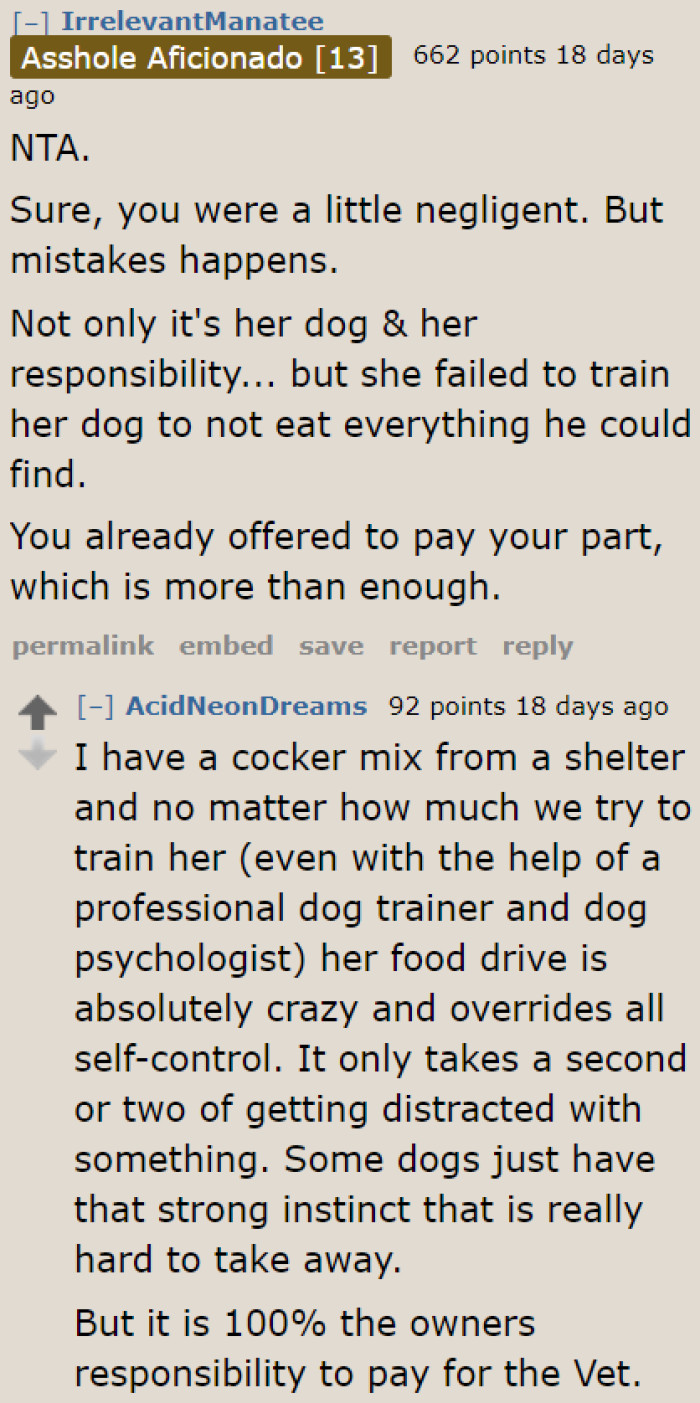
While accidents are bound to happen because of the dog's personality, it is true that the OP was negligent. However, their friend can't just expect the OP to shoulder the entire bill.
To make things fair, they need to split it in half because the dog is both their responsibility. If the friend continues to ignore them, the OP might have to surrender the dog to a shelter.
To mitigate conflict, both parties should engage in open discussions about expectations before situations arise.
Developing a clear contract of responsibilities can ensure that both sitters and owners understand their obligations, fostering a sense of accountability.
Research suggests that this proactive approach can significantly reduce misunderstandings and improve relationships.
Psychological Analysis
This situation reflects common challenges in caretaking relationships, where emotional stakes can amplify misunderstandings.
Open communication about expectations and responsibilities is crucial in preventing conflicts and ensuring both parties feel valued and respected.
Analysis generated by AI
Analysis & Alternative Approaches
In conclusion, addressing responsibilities in caretaking roles is essential to maintaining positive relationships.
Through clear communication and understanding emotional responses, pet sitters and owners can navigate conflicts more effectively.
Ultimately, fostering a collaborative environment can lead to more harmonious interactions and better outcomes for all involved.



